
Platform Orchestrator
Unifies infrastructure management for humans and AI agents, streamlining ops, enforcing standards, and boosting developer productivity in complex environments.
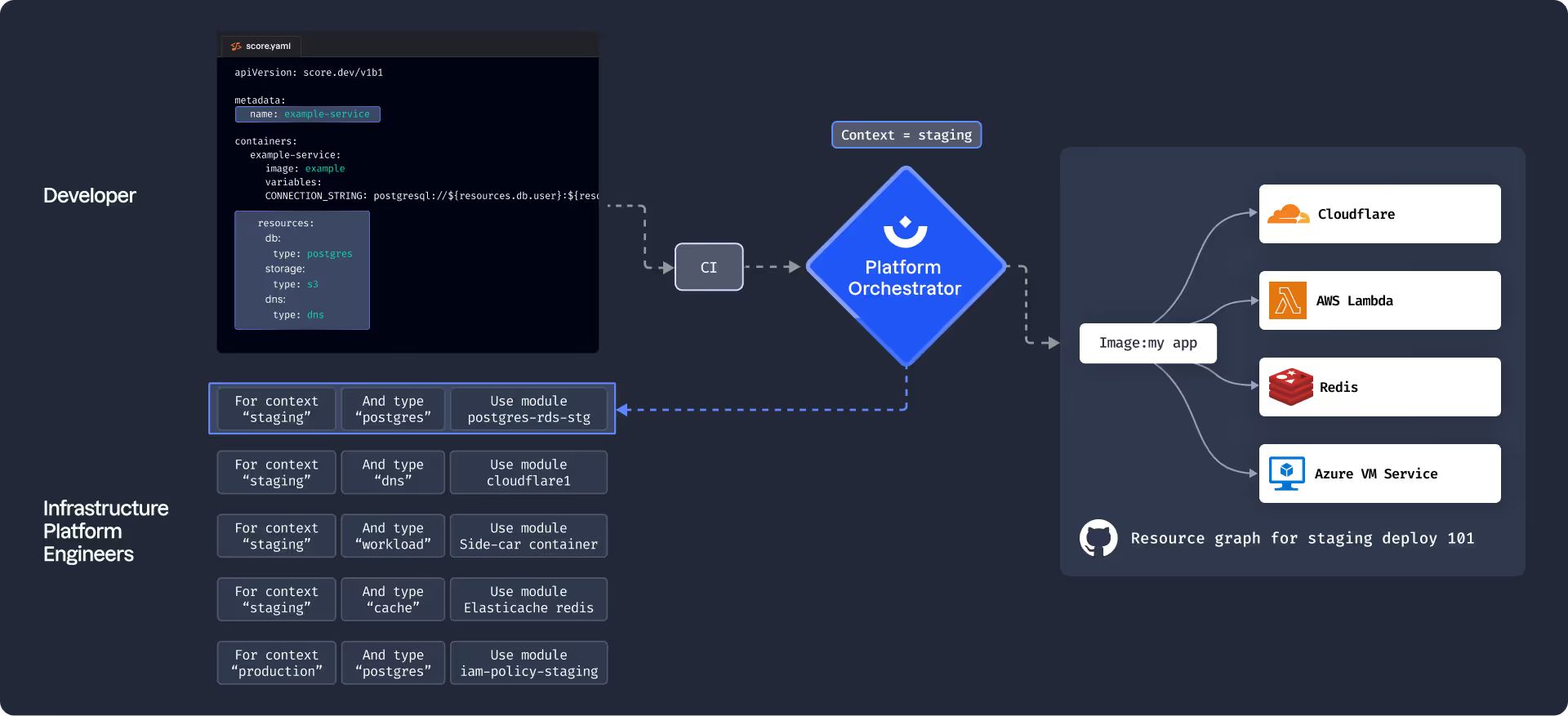
video
Check it out


How it works
A new approach to infra and config management
Generates a real time graph representation of your estate. Queryable against one API.
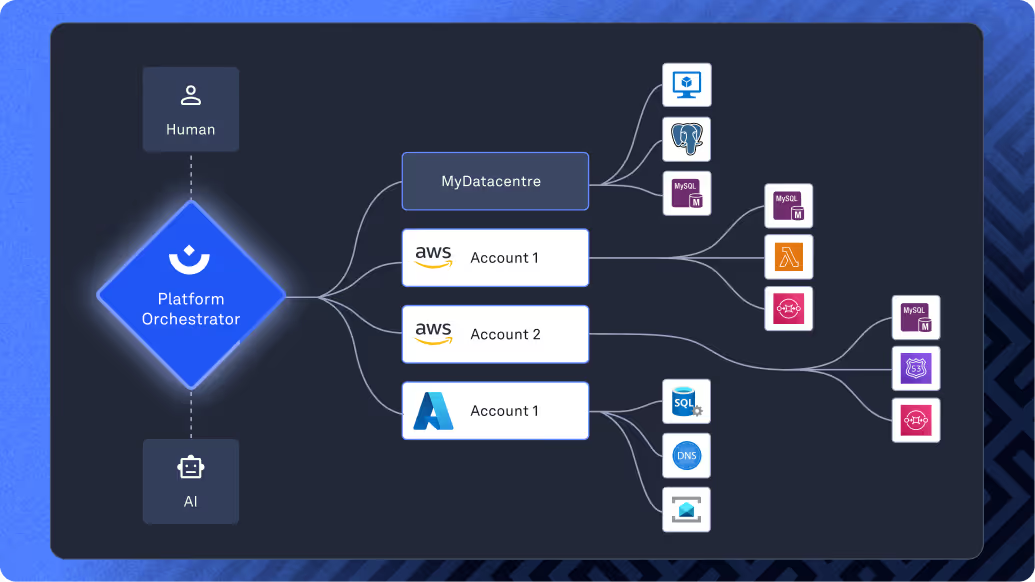
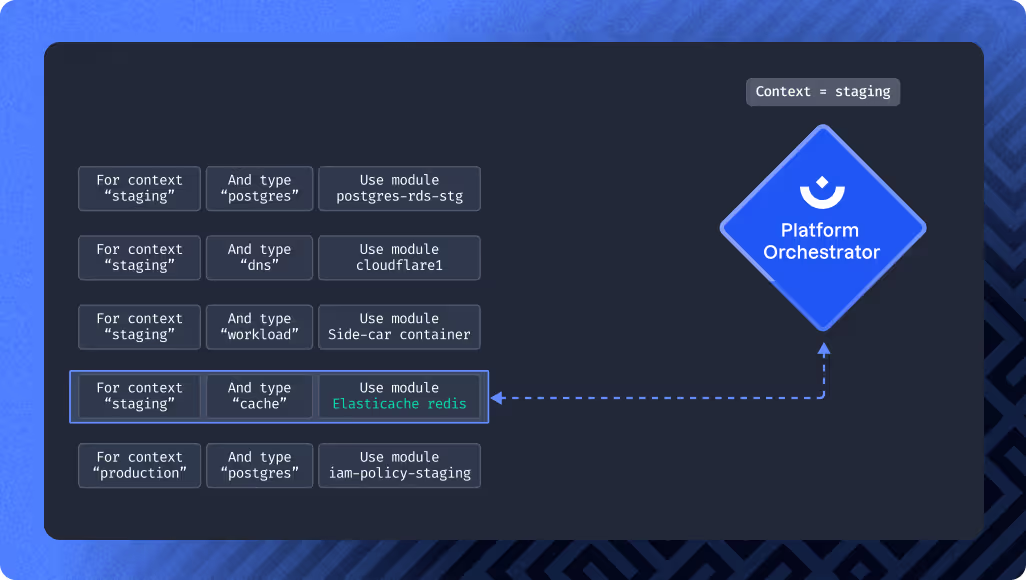
Allows you to set local and global standards with IaC for infra and configs and update them as a fleet.
Let AI agents provision infrastructure safely by enforcing rules and blocking misconfigurations.
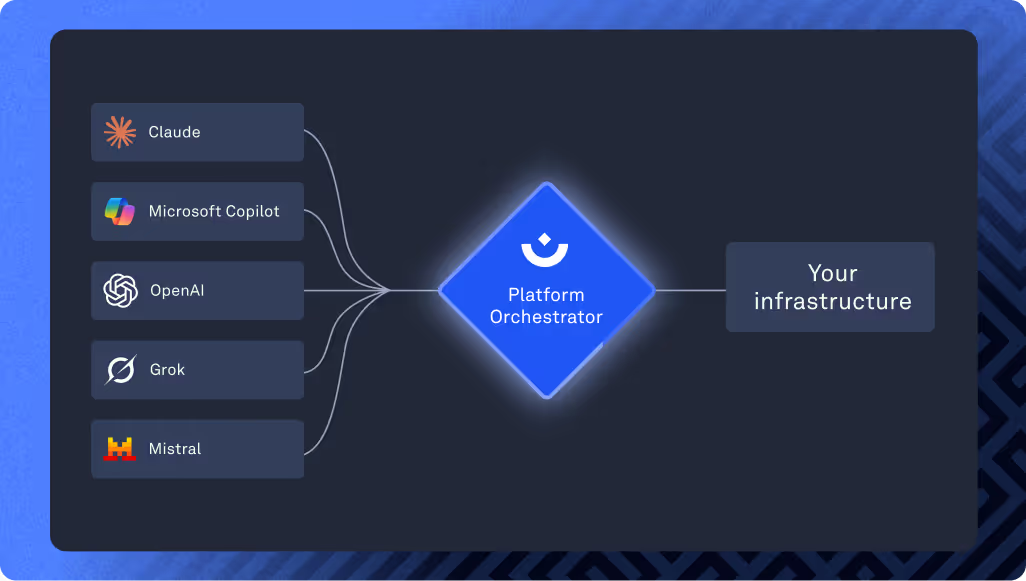

interfaces
Meets users where they are
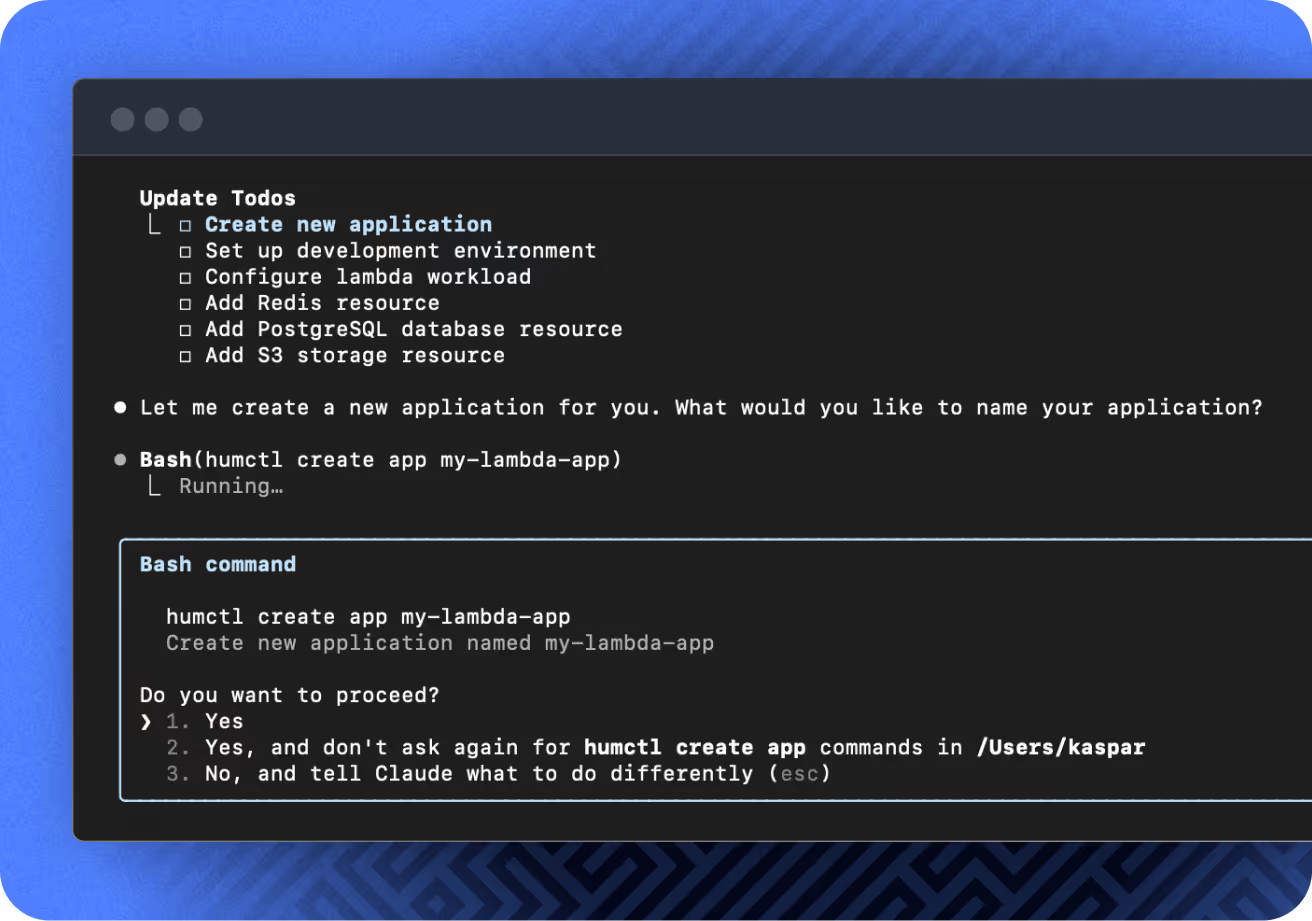
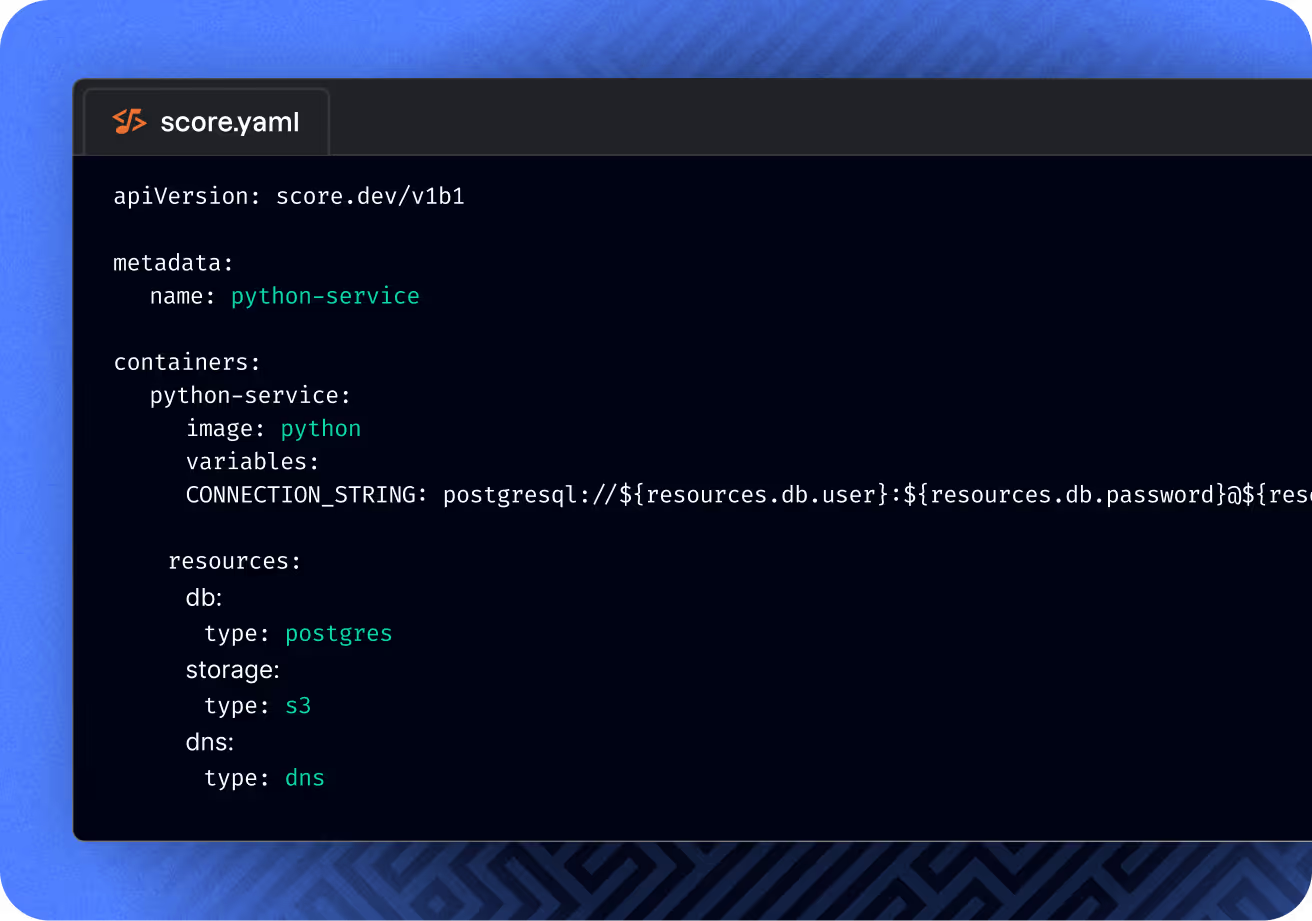
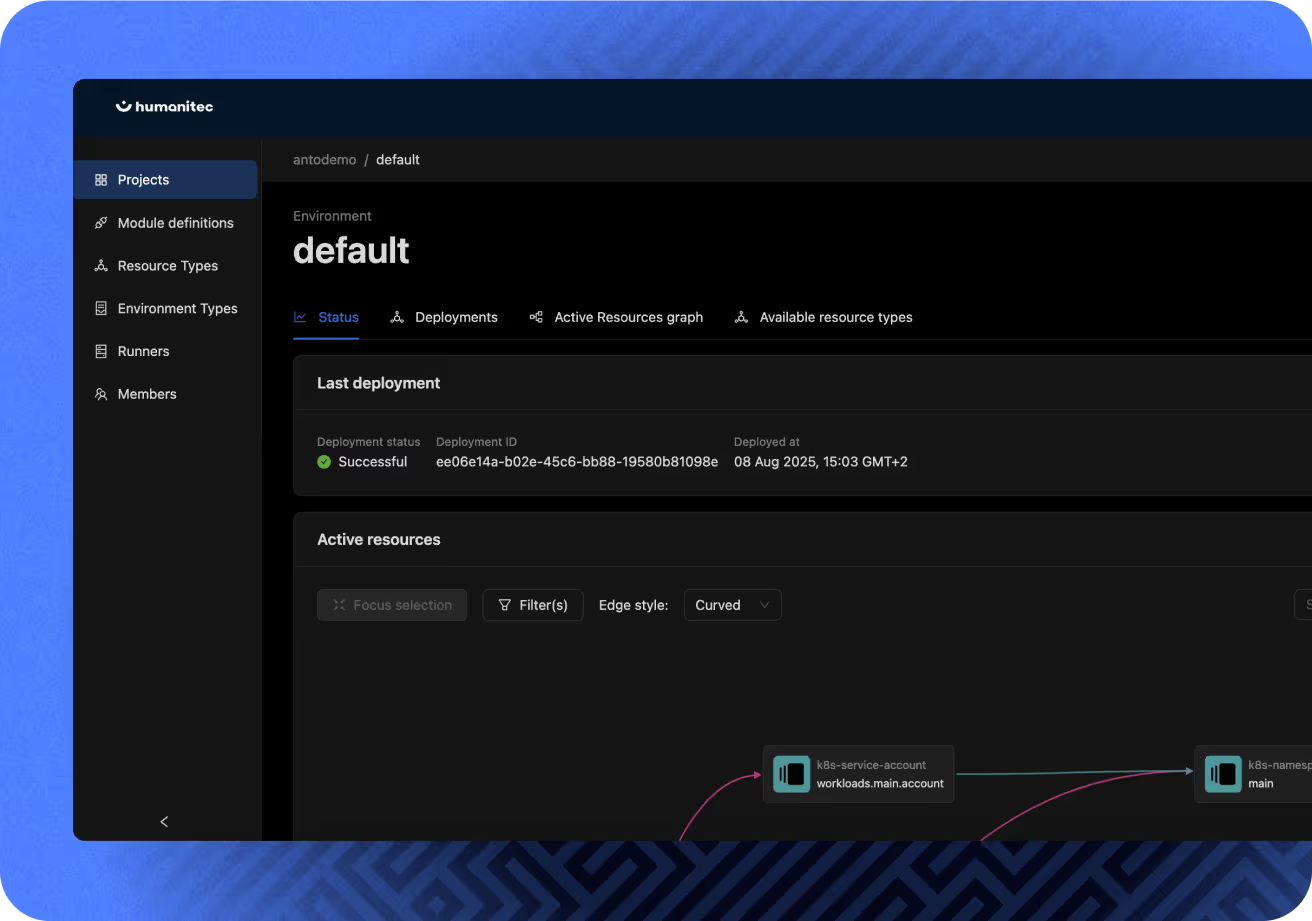
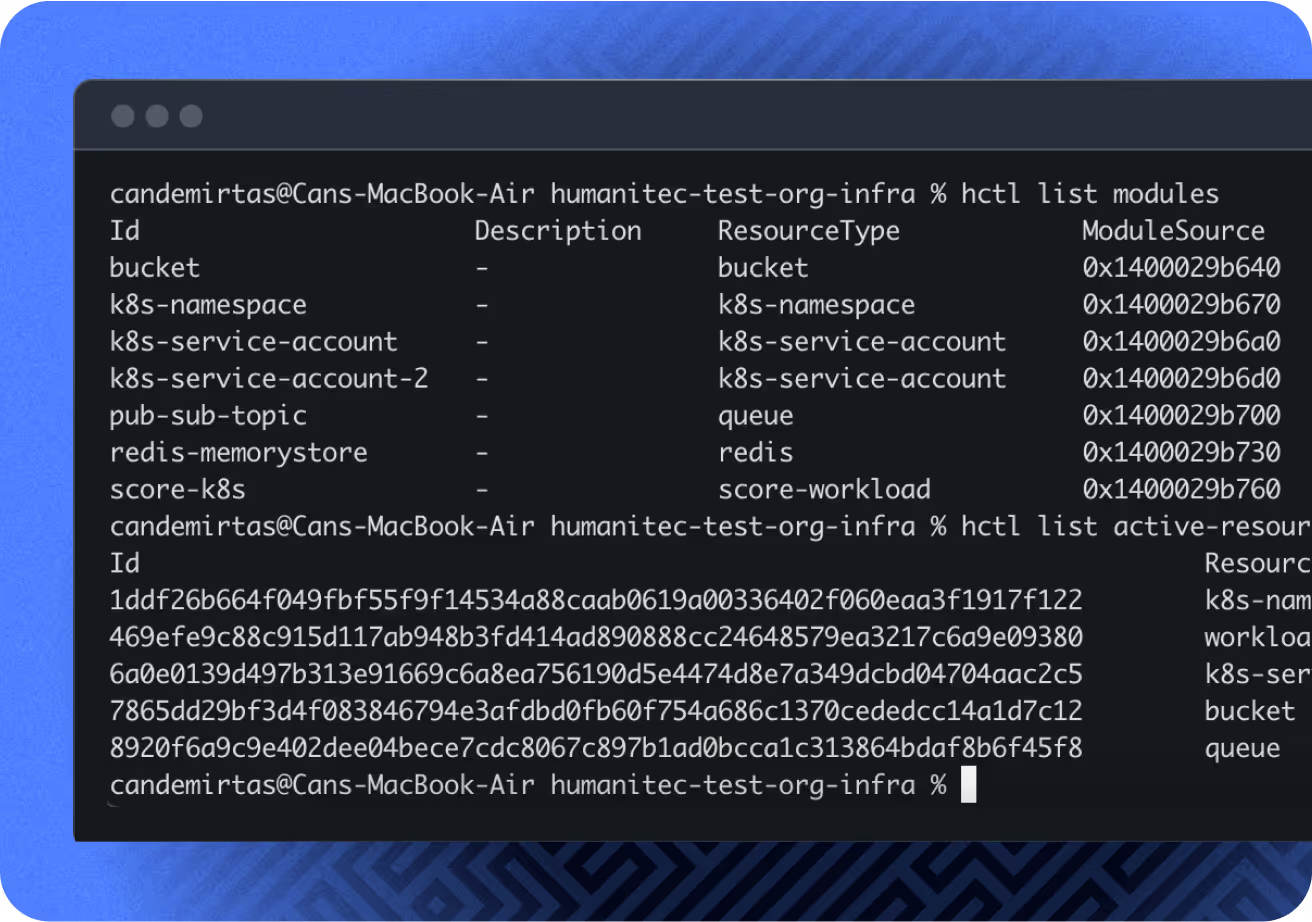
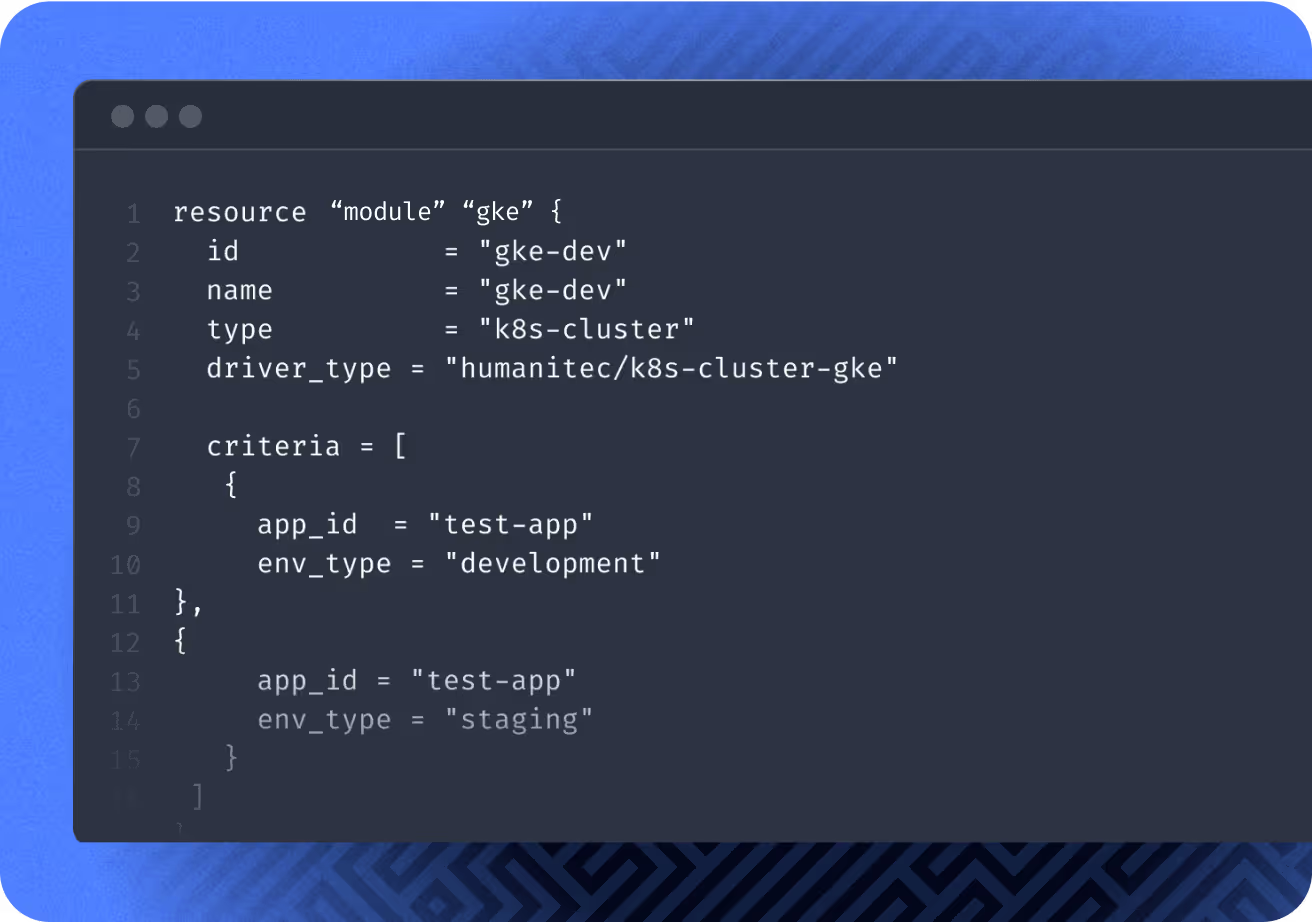

The Orchestrator is the backend for Internal Developer Platforms alike
Plug Humanitec’s Orchestrator into your existing brownfield setup. Use it as the backend for your portal, integrated with your CI/CD, IaC, and cloud or on-prem environments.


Humanitec vs DIY
Stop patching together ArgoCD, Crossplane, Terraform, and home-grown scripts.
FEATURE
HUMANITEC ORCHESTRATOR
DIY WITH OSS
Unified orchestrator layer
Built-in resource graph
Supports brownfield and any resource/compute
AI-ready APIs
Enterprise grade security





